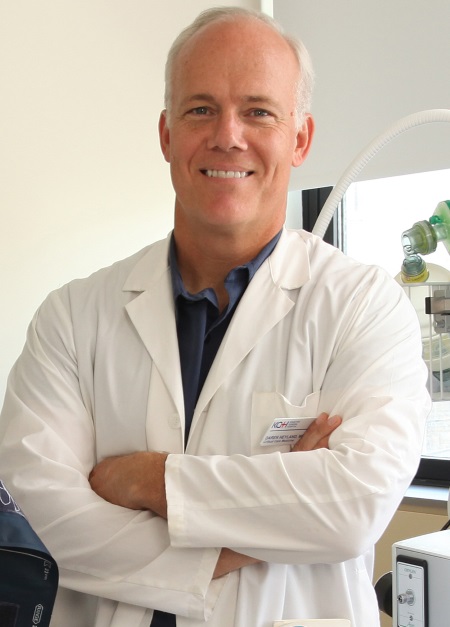Queen’s scientists receive millions in funding
July 28, 2015
Share
Seven Queen’s University researchers have been awarded $8.8 million in operating grants. Their research is studying everything from colon cancer to depression to better treatment methods for serious burns. The funding was announced today by the Canadian Institutes of Health Research (CIHR) Open Operating Grants Program.
Leading the way with $5.7 million over five years is Daren Heyland (School of Medicine) and his RE-ENERGIZE study. Dr. Heyland is studying the use of glutamine on patients with severe burn injuries and showing how the use of glutamine could lead to lower morbidity and mortality, as well as reduced health costs.

“We are all so excited that we’ve received this funding as it gives us the opportunity to evaluate whether an inexpensive nutritional strategy, glutamine, can save lives and reduce human suffering,” says Dr. Heyland, intensive care unit physician at Kingston General Hospital. “We’ve worked hard to pull together a network of more than 60 ICUs or burn units worldwide to participate in this, the largest trial of burn injured patients ever.”
Studies have shown that glutamine levels decrease acutely during critical illness and low levels of glutamine are associated with immune dysfunction and increased mortality. Dr. Heyland’s research will show the effectiveness and safety of glutamine in a trial of 2,700 burn patients around the world.
Dr. Heyland is working with the Clinical Evaluation Research Unit at Kingston General Hospital, which will function as the coordinating centre for this international trial.
Six other Queen’s researchers have earned funding from CIHR including:
Christopher Booth (Cancer Care and Epidemiology) - $218,101, over three years – Dr. Booth is studying whether patients with colon cancer are receiving the newest chemotherapy treatments and the quality of care they are receiving. He is also identifying areas where care can be enhanced in an effort to improve the outcome of patients in the future. Dr. Booth is also a medical oncologist at Kingston General Hospital.
Christopher Bowie (Psychology and Psychiatry) - $271,207, over three years - Dr. Bowie will use the funds to examine whether cognitive remediation can improve community functioning and reduce the risk of relapse for people hospitalized for depression. He has developed a program that is remotely deliverable to help reach individuals who might otherwise be unable to attend group sessions in person.
Colin Funk (Biomedical and Molecular Sciences) - $539,300, over four years – Dr. Funk’s research is studying the benefits of omega3 fatty acids, good fat found in diets rich in fish oil. Omega3 fatty acids are important for health throughout the body. Dr. Funk’s research with postdoctoral fellow Xinzhi Li aims to understand how omega3 fatty acids via a protein called FFAR4 can improve cardiovascular health and reduce incidence of cardiovascular disease.
Lois Mulligan (Pathology and Molecular Medicine) - $695,582, over five years – Dr. Mulligan is studying a molecule called RET that helps cells grow, move and survive in normal development. However, RET can also help cancerous tumour cells to spread. Her team is working on determining how exactly RET helps cancer spread throughout the body.
Keith Poole (Biomedical and Molecular Sciences) - $703,790, over five years – Dr. Poole’s funding will be used to research chronic and lethal bacterial lung infections in patients with cystic fibrosis (CF). Antibiotic resistance is a problem in the treatment of these infections and he hopes his work will assist in the development of strategies for overcoming their antibiotic resistance.
Shetuan Zhang (Biomedical and Molecular Sciences) - $713,307, over five years - Dr. Zhang is investigating how a shortage of blood supply to the heart muscle, known as ischemic heart disease, can damage a cardiac ion channel called HERG to causes irregular heartbeats and sudden death. Meanwhile, he is exploring novel means to protect HERG to treat irregular heartbeats and prevent sudden death in patients with ischemic heart disease.
For more information, visit the website.
Queen’s distinguishes itself as one of the leading research-intensive institutions in Canada. The mission is to advance research excellence, leadership and innovation, as well as enhance Queen’s impact at a national and international level. Through undertaking leading-edge research, Queen’s is addressing many of the world’s greatest challenges, and developing innovative ideas and technological advances brought about by discoveries in a variety of disciplines.